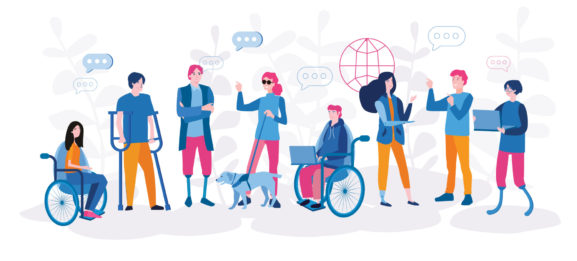Delegate personas in practice
When you’re organising a conference, it can be tempting to make broad statements and sweeping assumptions about your delegates.
Largely an older group? They’ll care more about the quality of the accommodation, and won’t mind paying more to be comfortable.
Young academics? Skip the luxuries, and concentrate on the quality of the content and innovative approaches.
A very corporate environment? Grand venues, prestige and value for money will matter most.
These broad strokes may sound true, but are they?
This is where delegate personas are so valuable. They’re based on real data. And you can use them to move away from broad stereotypes and guesswork, towards a deeper understanding of your individual attendees.
What is a delegate persona? Catch up here.
Now let’s look at how to make them work for you in practice.
Identify key demographics
Age
When it comes to the ages of your delegates, marketer Korey McMahon avoids broad terms like ‘millennials’ and ‘seniors’. She suggests using age ranges of eight to ten years instead. After all, ‘How you target a 20-year-old will differ from how you target a 30-year-old.’

Let’s look at an example. You’re a conference organiser, early in the process of establishing the programme. Imagine you’ve just booked a keynote speaker that you’re confident will bring in new bookings – especially from people who’ve expressed interest, but haven’t yet committed. You need to let those potential delegates know.
If your delegate persona Academic Aisha aged 41 always opens your emails, great: that’s a reliable approach. Your 22-year-old persona Researcher Ricardo who never reads email but regularly uses Linked In or Facebook should be targeted there instead.
Location
Your personas will tell you if you’re talking to an international audience. If so, it’s vital that you tailor your communications accordingly.
Some conferences will be multilingual, including attendees from around the world. If you’re holding your event in the UK it’s not unreasonable to make English the dominant language. However, if a significant portion of your audience are all from a single location, consider offering a fully-translated website, app or brochure.

Don’t send out PDFs with key information like travel details or schedules. Put this content on a web page: the browser will translate it for your user without you having to do the hard work. Just bear in mind that idioms don’t translate well, so avoid slang terms and quirky phrasing.
If you’re using spoken word video, make sure there’s a transcript available. Again, this can be translated automatically for users who don’t speak English.
These approaches aren’t just good for international conferences. They’re good practice for accessibility across the board, making your communications appropriate for users with a range of disabilities.
Financial status
Most people aren’t comfortable disclosing their income, and that’s understandable. That said, your personas should include an income range within its demographic data.
If you aren’t able to ascertain an income range for each persona direct from your research, use job title, industry and age to create a likely figure. A simple salary calculator like Totaljobs for UK roles, or this tool from Payscale for international jobs will make this easy for you.

Applying this information to each of your personas allows you to understand what financial burden your event is placing on them. For a low-income persona emphasise what great value you’re offering. Make sure they know about discounts for early booking or budget accommodation. A persona with a higher income may be just as concerned about value for money, but from a different perspective. They might be more interested in luxury and added extras, and less likely to commit early to get reduced rate.
Other factors
Depending on your event, you might find other factors are more relevant.
Gender and education level can be important demographics to consider. But you might find other, less obvious traits more significant when it comes to communicating with your personas. How comfortable are they with online purchases, or apps? What are their career goals? What do they do for fun?

Craft targeted messages
Got an important message to share? It could be the initial confirmation of the date and location of your conference, or a warning that the nearest motorway will be closed on arrival day.
As a conference organiser, you need to know how to reach your audience, and how to communicate with them in a way they’ll respond to positively.
Segment your contacts
Segments don’t only come in oranges.
Segmenting a list of contacts means dividing them up into brackets, or groups. You can use your personas to segment customers you already have or are in contact with, to make sure they’re getting the right messages.

This can mean segmenting an email list, and tailoring all communications to different personas: one that responds well to occasional formal and polite messages; one that prefers very regular communication that links out to other interesting content; one that should only receive the most essential information via email.
It can also mean targeting your current and potential delegate list on other platforms, like social media, industry websites, other conferences and networks, and print magazines.
Understand the user journey
Seeing your conference from a user perspective – that is, a potential delegate perspective – is essential.
Find out more about customer experience and user experience here.
Your delegate personas will help you to understand how best to communicate with the real thing. But it’s important to think about the process from the other side, to make sure you give the right kinds of communication at the the right times.

Try mapping out each of your persona’s route through the conference, from researching conferences in this industry or field, to registering, to attending. Look for the times they need most support, and give it in the right format. Perhaps Sales Analyst Sarah has registered for updates and checks your conference website regularly, but lacks some key reassurance to make the final decision to commit to attending. If you know this persona needs a financial incentive, offer one as a pop up on your website. If they’re more driven by content and respond well to personalised communication, send them an email detailing more about the conference.


